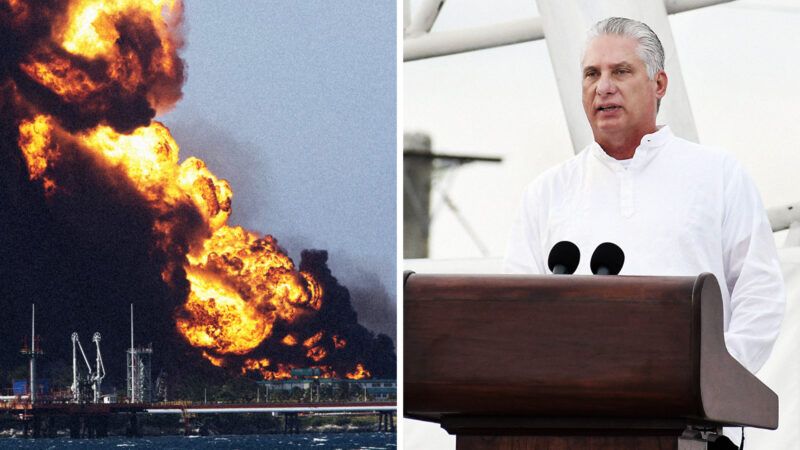Cuba Liberalizes Economy as Economic Crisis and Protests Grow
The island’s communist government announced it would allow foreign investors to enter its nationalized retail industry as it faces shortages, blackouts, and new protests.

In a major departure from established economic policy, the Cuban government has announced it will allow foreign investors into Cuba's retail and wholesale industries for the first time since Fidel Castro nationalized those industries in 1969.
The move comes as Cuba faces one of its worst economic crises and a new wave of protests against the communist government in Havana. Though the communist government had recovered much of its political footing since unprecedented protests broke out all over the island last July over quality of life and repression of artists and musicians, the regime has seen its standing slip over the last month. Protests have emerged across the country as Cubans have voiced their discontent with days-long blackouts that have hit rural and interior areas of the island. Notable videos have circulated on social media of protests in Santiago de Cuba, Cienfuegos, and Holguin provinces as Cuba have taken to the streets in the dead of night.
#ULTIMAHORA en #Cuba nueva noche de protestas. Ahora en #SantaCruzdelNorte. El pueblo #cubano está cansado. #CubaEstadoFallido pic.twitter.com/BSWPJIOu2E
— Daniel Benítez (@danielbnews) August 10, 2022
These protests have targeted the Communist Party elite in particular. On August 5th, protestors in Holguin province torched a state-owned restaurant geared towards tourists. One resident of a neighboring town who spoke to the Cuban exile media outlet CiberCuba claimed it was connected to a nearby film festival strongly supported by the state. "Since we in Gibara aren't getting our power cut, because of the film festival, Freyre's losing the electricity it needs, plus the amount we need," the anonymous source said.
Concerns about blackouts have only increased after a massive fire destroyed eight oil storage tanks at a fuel depot in Matanzas province. At least two people died and hundreds were injured in the disaster. Five thousand people were also evacuated from the depot's vicinity.
https://twitter.com/KbreraMia/status/1556532689179533313
These tanks, which stored hundreds of thousands of gallons of oil, were a critical lifeline for the Cuban regime. In the immediate aftermath, Cuba's state electric company has projected significant electricity deficits in the coming weeks as demand remains high.
Inflation and shortages have also hit Cubans hard. Though Cuba is expected to see 3.4 percent GDP growth this year, inflation is approaching 30 percent as the Cuban peso has experienced sharp devaluation and rising costs for fuel and other imported goods.
Cuba's tourism industry, another key lifeline for the Caribbean nation, has also suffered in recent months. Western sanctions against Russia due to the war in Ukraine have stunted demand for tourism. Additionally, a major luxury hotel in Havana, the Hotel Saratoga, exploded during a gas leak back in May, killing over 40 people. The hotel was slated to open after being closed for two years, marking a huge blow to the state-run tourism industry.
This economic crisis is fueling a wave of migration from the island unseen in recent history. A study of Coast Guard and Customs and Border Patrol data published by the Center for Democracy in the Americas found that more Cubans have fled the island in the last year than fled during the entirety of the 1980 Mariel Boatlift and the 1994 Balsero Crisis.


Show Comments (28)